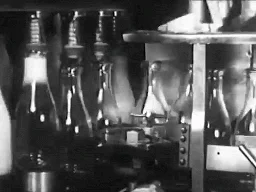By TIM FAULKNER/ecoRI News staff
 Advocates for a circular economy
agree that a bottle-deposit program is a staple for reducing plastic waste.
Advocates for a circular economy
agree that a bottle-deposit program is a staple for reducing plastic waste.
Despite so-called “bottle bills” in
Connecticut, Massachusetts, Maine, New York, and Vermont, Rhode Island has for
decades resisted enacting a take-back program, much as it does mandating
motorcycle helmets.
Although there is a lack of public opposition, elected officials and businesses cry foul of a system proven to increase recycling and reduce litter.
Although there is a lack of public opposition, elected officials and businesses cry foul of a system proven to increase recycling and reduce litter.
Some of the state’s most influential
trade groups object.
The Greater Providence Chamber of Commerce contends that a deposit law poses “a significant burden on a wide variety of businesses.”
Trade groups for minimarts and gas
stations, food and beverage businesses, hotels and restaurants, and liquor
stores and distributors all oppose a bottle bill.
The New England Convenience Store & Energy Marketers Association, a trade group representing some 500 minimarts, claims the businesses it represents don't have the space to store empty bottles.
The New England Convenience Store & Energy Marketers Association, a trade group representing some 500 minimarts, claims the businesses it represents don't have the space to store empty bottles.
The Rhode Island Hospitality
Association claims bottle redemption will increase costs for rent, labor,
energy, and food.
Beer, wine, and spirits distributor
McLaughlin & Moran Inc. says it isn’t equipped to manage empty bottles.
A 2009 study by the
Rhode Island Resource Recovery Corporation found that a 5-cent deposit produces
a significant increase in the collection of plastic bottles, aluminum cans, and
glass containers.
The Audubon Society of Rhode Island
has noted that 88 percent of plastic bottles are recycled in states with bottle
bills, compared to 68 percent of plastic bottles that are collected through the
state’s current single-stream system.
House bill H7611 calls for a
10-cent fee on all beverage containers, a deposit amount only used in Michigan
and Oregon. The Conservation Law Foundation says the higher fee has led to a 90
percent redemption rate in those two states.
If adopted in Rhode Island, an additional 15,000 tons of plastic containers will be diverted annually from the Central Landfill in Johnston, according to the organization.
If adopted in Rhode Island, an additional 15,000 tons of plastic containers will be diverted annually from the Central Landfill in Johnston, according to the organization.
In Oregon, the fee has funded a
refillable bottle program. In Rhode Island, a 4-cent handling fee paid by
beverage distributors would cover the costs for retailers and redemption
centers.
“We are an outlier on this,” said
Rep. Carol Hagan McEntee, D-Narragansett, sponsor of the bill, noting that
states with bottle bills have higher recycling rates.
Rep. Brian Patrick Kennedy,
D-Hopkinton, objected, saying the 10-cent fee would cut into beverage sales
near Connecticut where the deposit fee is 5 cents.
“The last thing I want to do is put
our retailers at a disadvantage … which would force people to go to Connecticut
to buy bottled water,” said Kennedy during a March 5 House Committee on the
Environment and Natural Resources hearing.
McEntee offered to lower the fee to
5 cents to advance the legislation.
“We need to take this seriously,
otherwise we’re getting an awful lot of plastic pollution, and we have to
protect the planet and the future,” McEntee said.
The bill was held for further study.